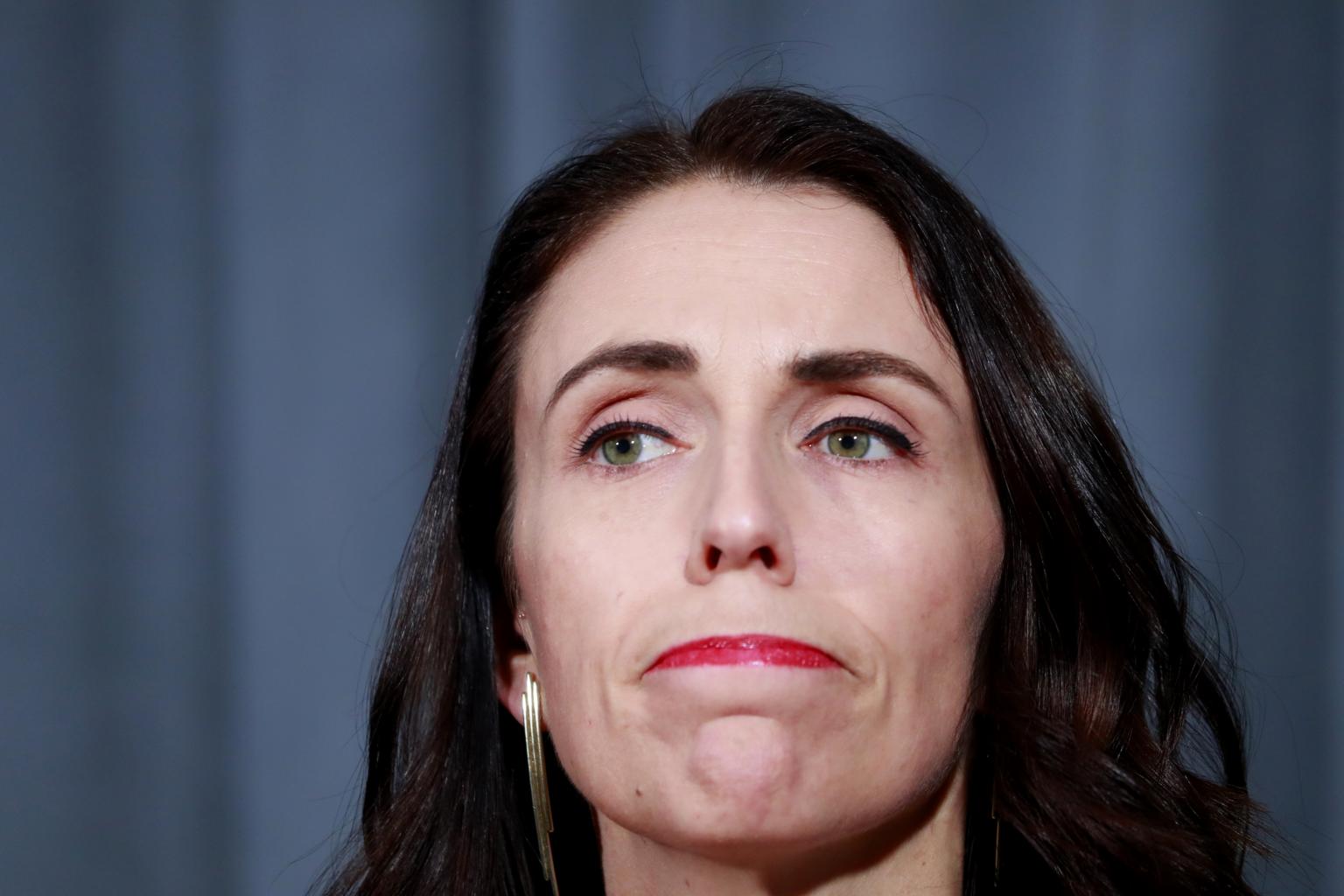Under pressure, New Zealand ends a refugee policy branded racist
Sign up now: Get insights on Asia's fast-moving developments

The move lifts a political millstone from around the neck of New Zealand Prime Minister Jacinda Ardern, who has been perceived globally as a champion of migrants and refugees.
PHOTO: REUTERS
WELLINGTON (NYTIMES) - After months of growing pressure, the government of Prime Minister Jacinda Ardern of New Zealand on Friday (Oct 4) abolished a policy restricting refugees from Middle Eastern and African countries, a curb imposed by the previous government that refugee advocates called discriminatory and racist.
The reversal of the decade-old rule set New Zealand in opposition to the increasingly restrictive refugee policies of allies like Australia and the United States.
Last week, the Trump administration announced a sharp cut to the number of refugees it will accept, and Australia's system of offshore detention of refugees arriving by sea continues to draw international condemnation.
The move also lifts a political millstone from around the neck of Ms Ardern, who has been perceived globally after the Christchurch mosque attacks in March as a champion of migrants and refugees. For months, she had been forced to deny that the policy amounted to discrimination because one of her key political allies supported it.
The restriction, introduced by the centre-right government that preceded Ms Ardern's centre-left government, which has been in power for nearly two years, allowed refugees from Middle Eastern or African nations to resettle in New Zealand only if they could prove they already had relatives there.
The rule was ostensibly meant to prioritise refugees closer to home in the Asia-Pacific region. But government documents also revealed a desire to save money on resettlement costs, as well as "broad security concerns" about refugees from Africa and the Middle East.
The reference to security concerns led refugee advocates to brand the policy Islamophobic. In recent years, critics had compared it to US President Donald Trump's travel ban on people from predominantly Muslim countries.
Under the now-discarded policy, refugees from the Middle East and Africa were each allocated 14 per cent of New Zealand's annual refugee quota of 1,000 people. But the requirement that they have family links in the country meant officials had struggled to fill the quota, said Mr Murdoch Stephens, a lecturer at Massey University in Wellington and a campaigner against the rule.
In the 2015-16 fiscal year, for instance, only four refugees from Africa were accepted. Numbers from the Middle East have been higher, although Mr Stephens said those figures had been skewed by New Zealand's acceptance of Syrian refugees, who were not required to have family members in New Zealand under a special emergency quota between 2015 and 2018.
Since that emergency quota ended, he said, the number of refugees accepted from the Middle East has started to fall again.
Mr Guled Mire, a campaigner against the policy who fled war in Somalia 22 years ago, said the restriction had been intended to keep "people like me" out of New Zealand. Because the rule was initially kept secret, he said, the African community did not know why refugee numbers had plummeted.
"It means that many people languished in refugee camps for years, who had the right to resettlement in a place like New Zealand and live a life full of dignity and opportunity," he said.
The immigration minister, Mr Iain Lees-Galloway, said on Friday that the Middle East and Africa quotas would each be increased from 14 per cent to 15 per cent. Fifty per cent will continue to be drawn from the Asia-Pacific region, and 20 per cent from the Americas.
New Zealand, a country of about 4.8 million people, will increase its overall quota from 1,000 people annually to 1,500 in 2020. By contrast, the United States, with nearly 330 million people, will accept only 18,000 refugees over the next 12 months.
Mr Stephens and Mr Mire said it had become untenable for Ms Ardern's government to leave the refugee restrictions in place after the terrorist attack at two mosques in Christchurch in which 51 Muslims were killed and dozens more wounded.
While Ms Ardern made global headlines for her inclusive and welcoming language about Muslims, she had stopped short of either supporting or condemning the family link rule. She was caught in a political stand-off with her coalition governing partner - a smaller political party called New Zealand First - which favoured the restriction.
Professor James Hathaway, an expert on international refugee law at the University of Michigan, said that the world still faced a refugee crisis, with "significantly less than 100,000 spots" available globally for more than 13 million refugees.
"Even a good move like this, important as it is symbolically, isn't going to make a meaningful dent in the horror show that is literally millions of refugees waiting for decades with no solution in sight," he said.


